Contrur: Passive cone-shaped geometric structures
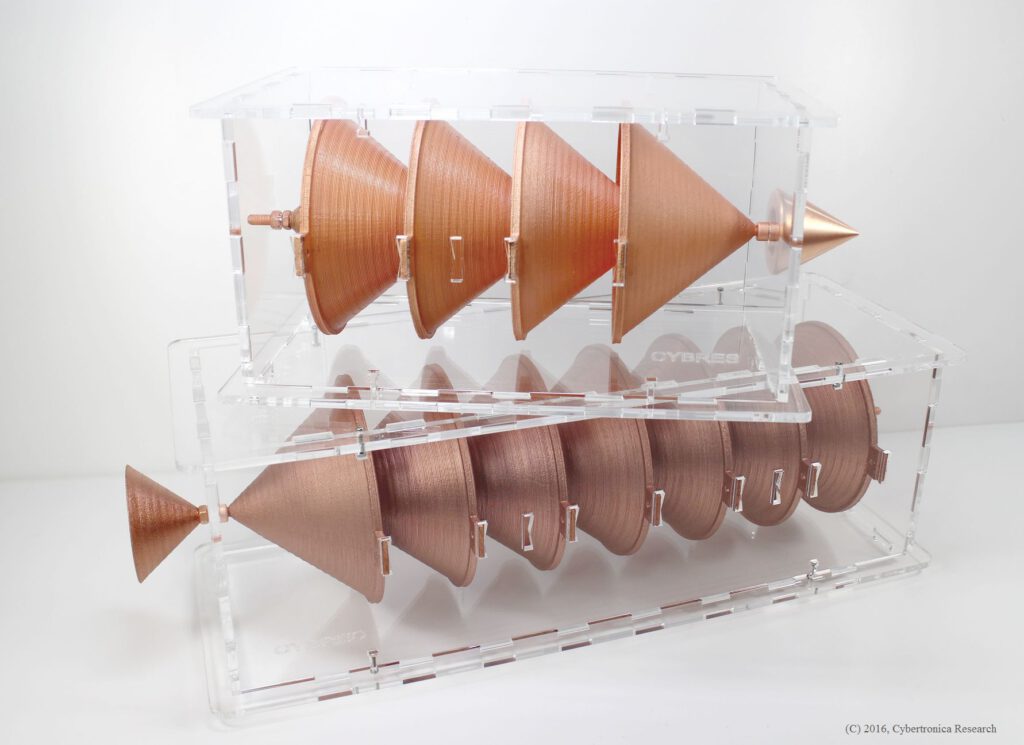
Description
The generator “Contur” is an experimental product developed for a technological and scientific exploration of the impact of geometric shapes on diverse biological, chemical, electronic and environmental systems. Examples of applications are:
- diverse experiments with the shape effect
- passive generation of weak non-EM emission based on the shape effect
- exploring “the effect of pyramid”
- structural amplifiers for long-range signal transmission on receiver or transmitor sides
- experimental systems for exploring the imprinting effect with different modulating materials and feedback loops
The generator consists of cones inserted into each other on 0, 1/3 or 1/2 of their height (the focus position of 0%, 33% or 50%). Each cone is made from organic polymer coated by copper from both sides. Minimal thickness of each polymer/copper layer is 0.3 mm. Cones have a golden ratio in relation between the height and the base diameter.
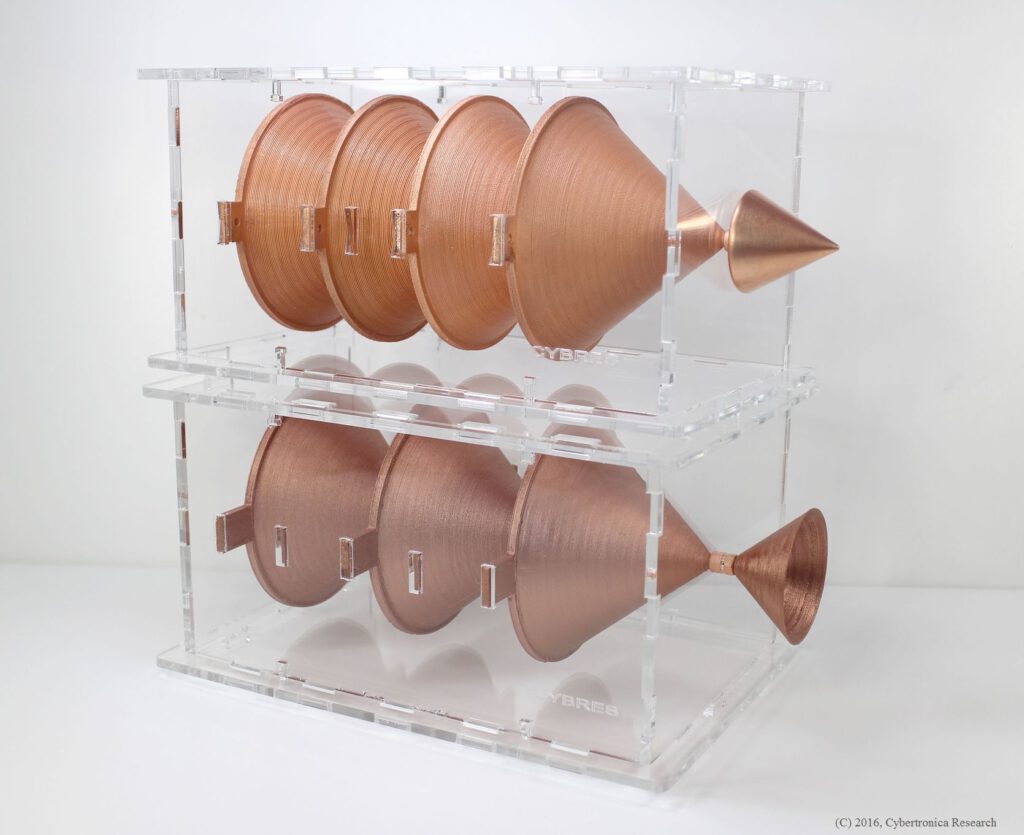
The small size generator has 3 or 4 cones with 0% or 33% focus position, the middle size generator — 5 or 7 cones with 0% and 33% focus position. Change of the focus position can be performed by users.
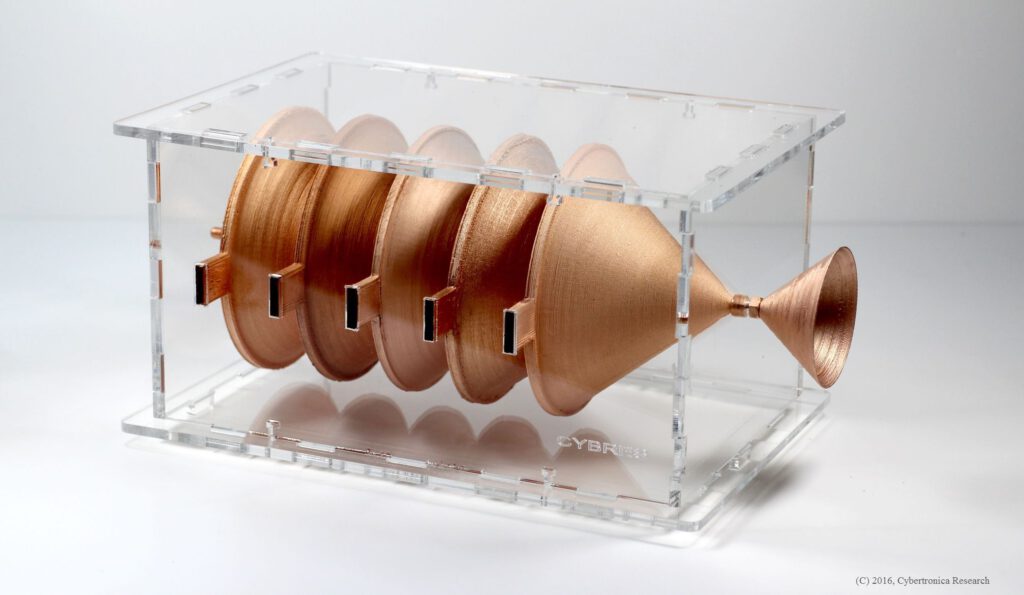
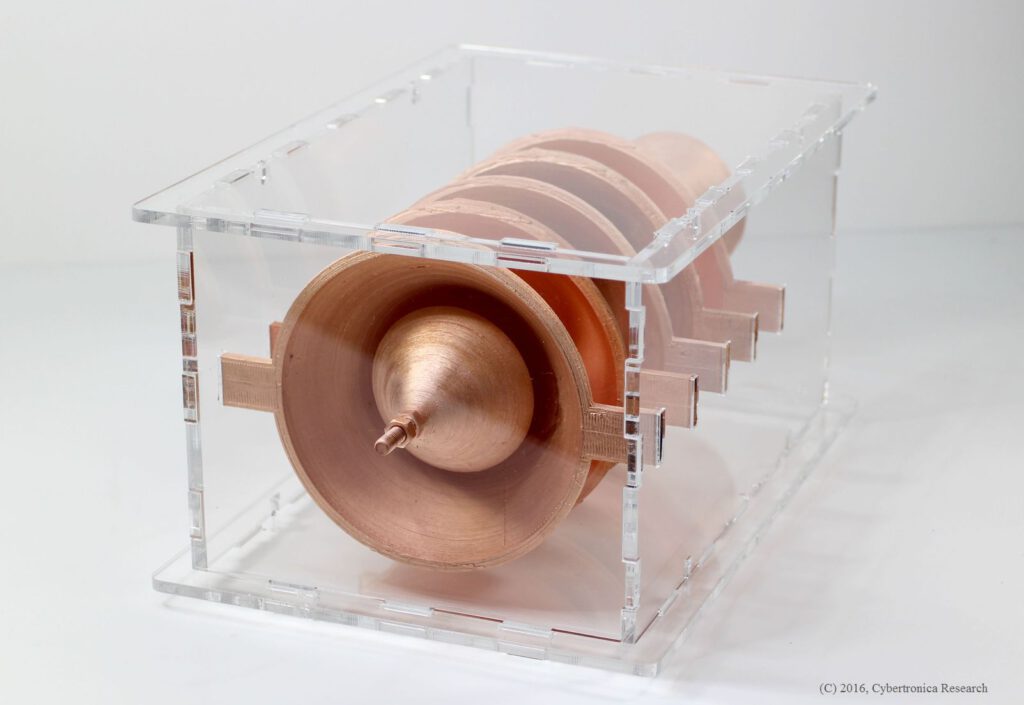
Delivery
- Large copper-biopolymer cones, assembled or partially assembled (to reduce the risk of transpotration damages) in an acryl box
- Small copper-biopolymer cone, assembled in the back part of the device
- Small copper-biopolymer cone + metal cone for assembling in the front part (not assembled)
- Description
Versions provided for eBay/Amazon/Etsy
- a – 3 cones with the focus position 0%
- b – 4 cones with the focus position 33%
- c – 5 cones with the focus position 0%
- d – 7 cones with the focus position 33%
We strongly reccomend to start experimentation with the version c!
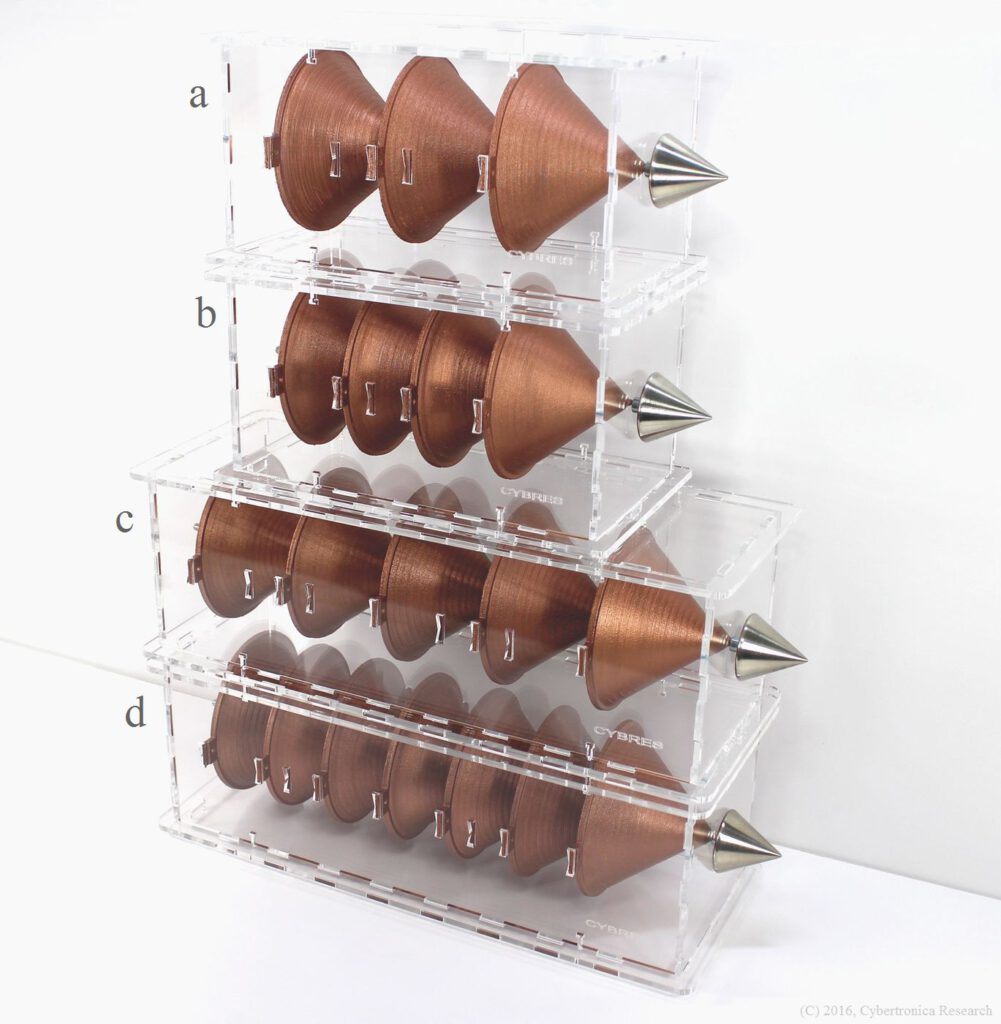
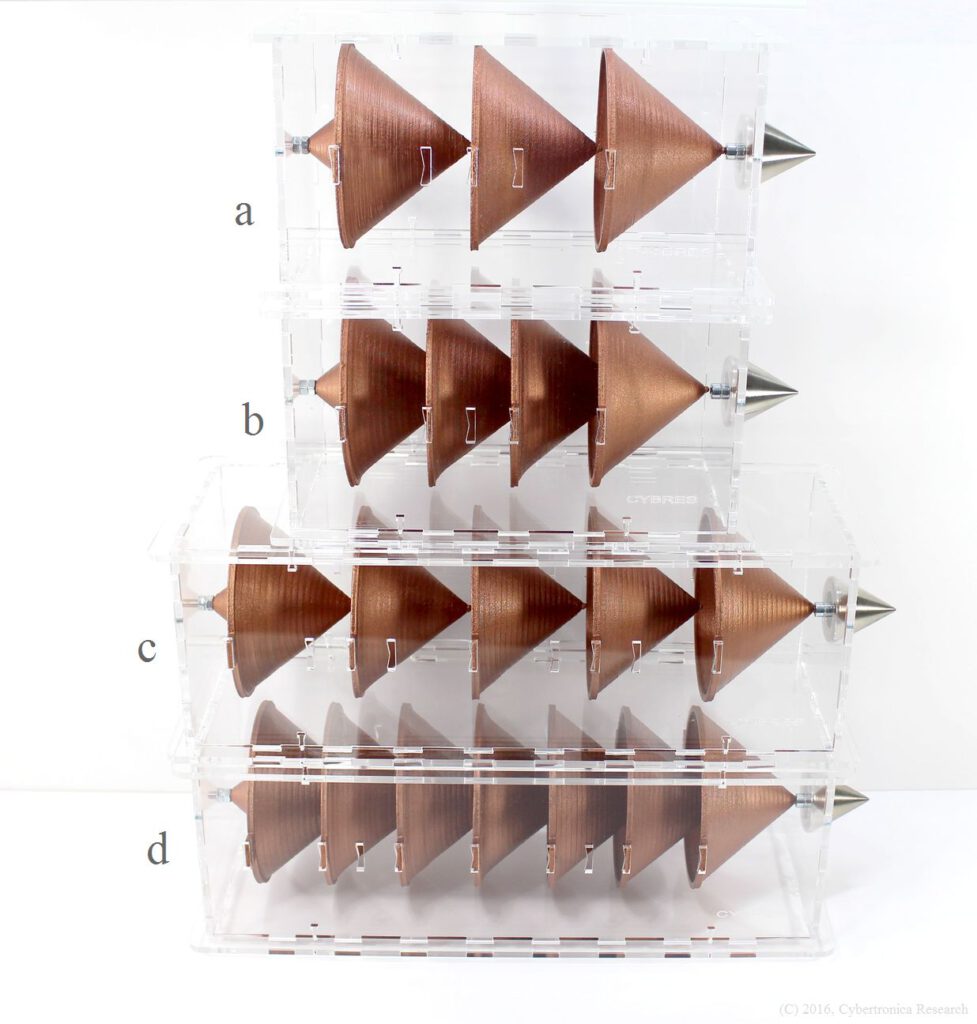
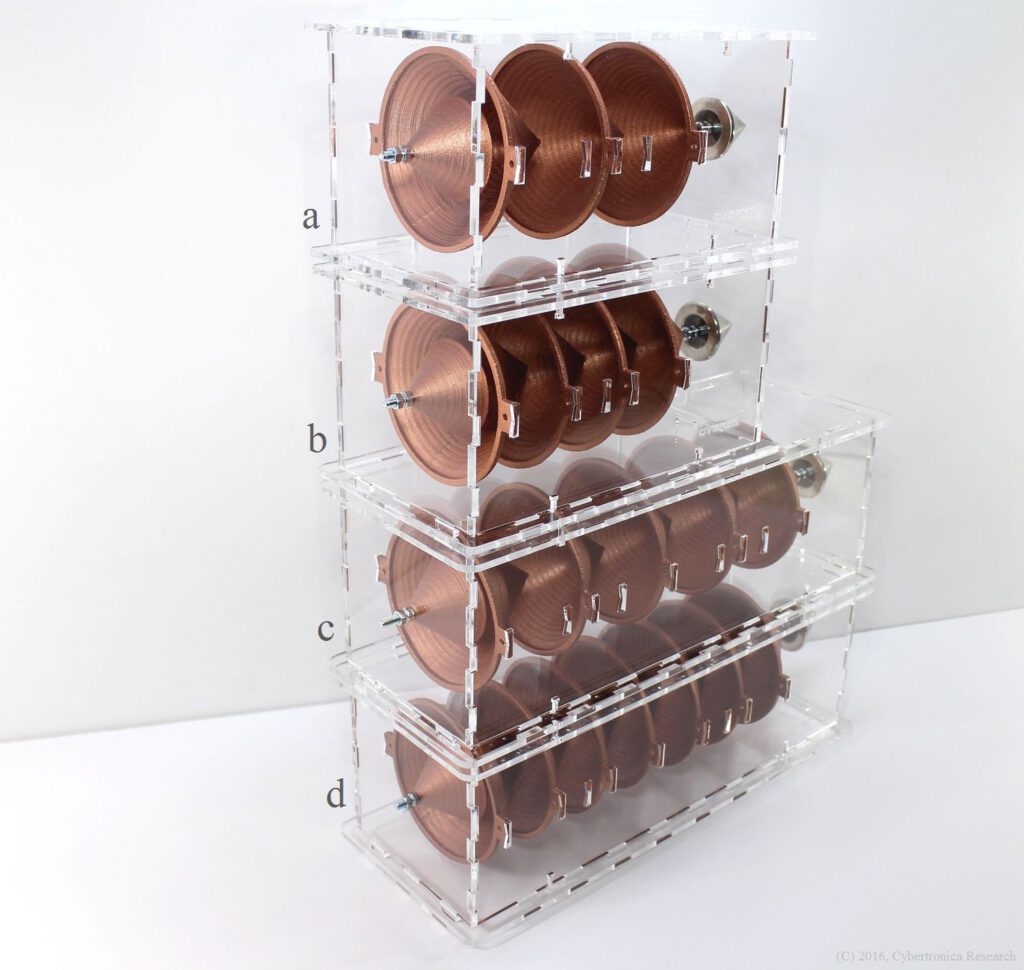
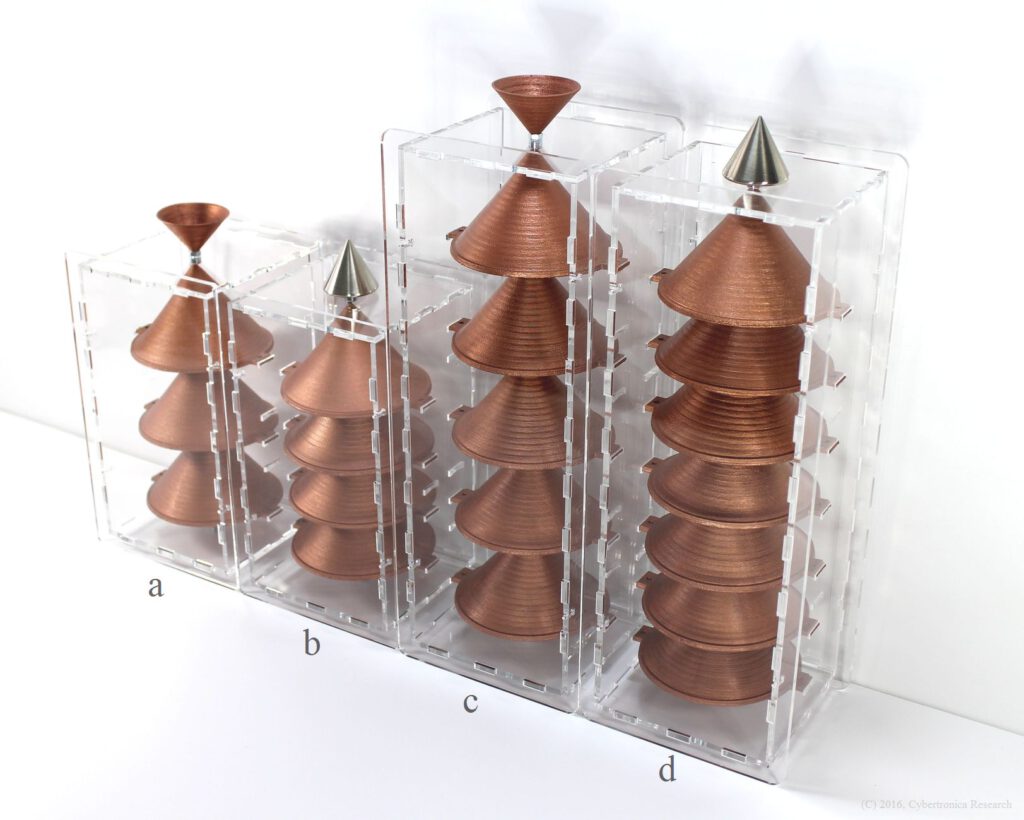
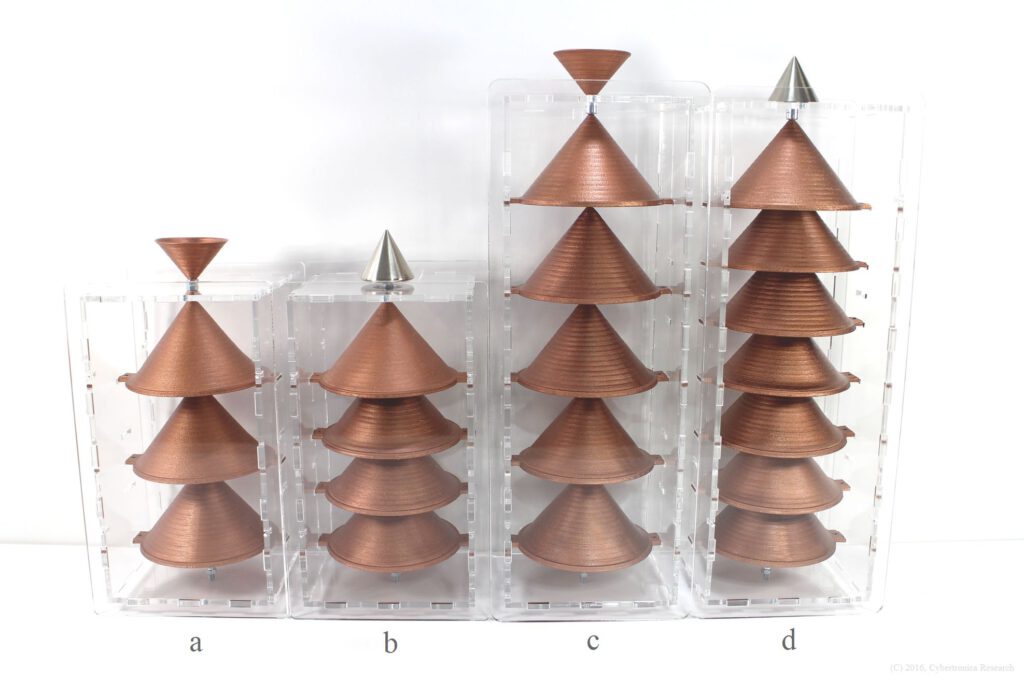
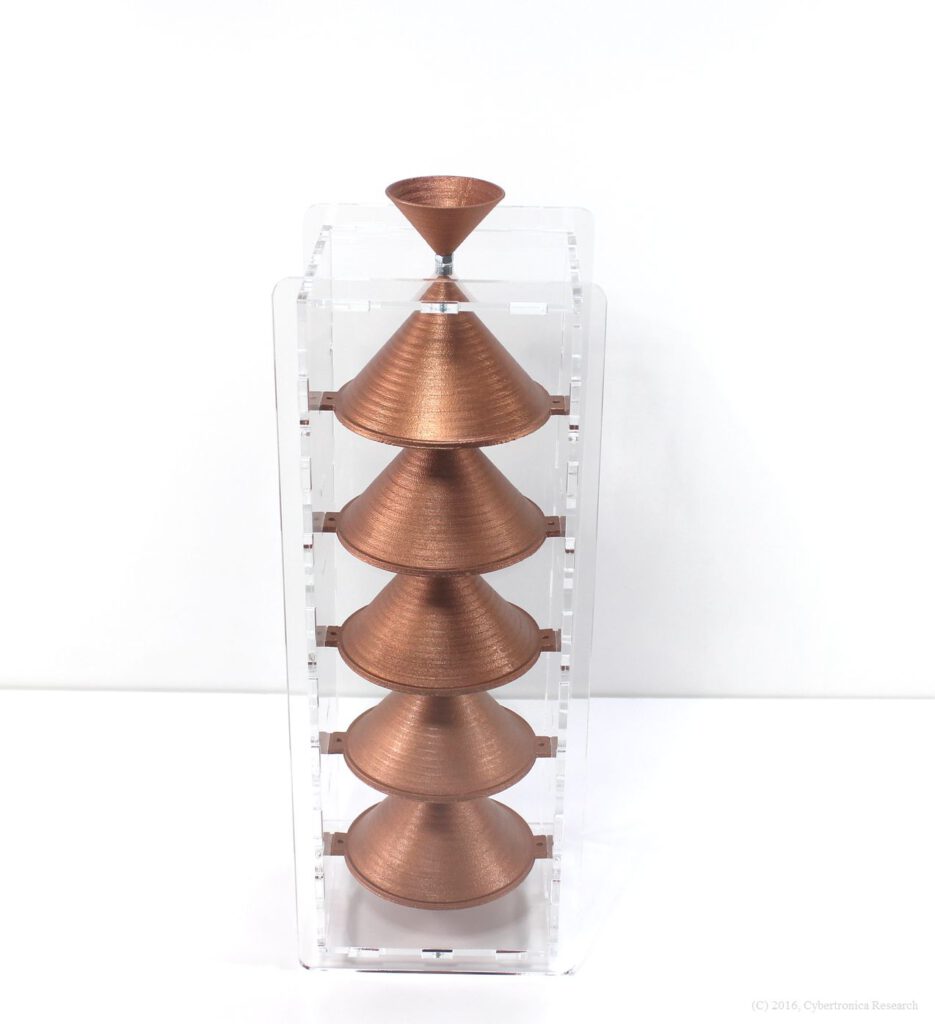
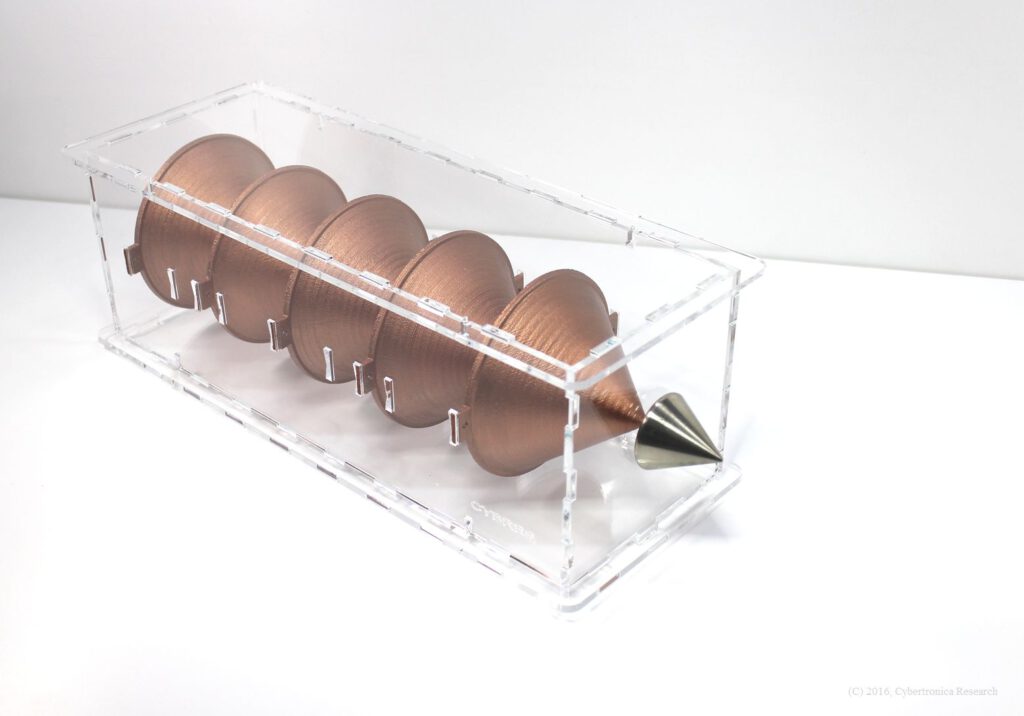
Literature
- Cybertronica Research, The generator ‘Contur’. Innovation column, IJUS, 11(4), p.65, 2016
- S. Kernbach. Unconventional research in USSR and Russia: short overview. arXiv 1312.1148, 2013.
- S.N.Maslobrod, Distant impact of cone-shaped geometrical structures on bio-isometry of seedlings, International Journal of Unconventional Science, 11(4), pp. 54-57, 2016
- S.Kernbach, I.Kuksin, O.Kernbach, Analysis of weak emissions by electrochemical impedance spectroscopy (rus), IJUS, 11(4), 6-22, 2016
- S.Kernbach, I.Kuksin, O.Kernbach On accurate differential measurements with electrochemical impedance spectroscopy, arxiv.org/abs/1607.07292, 2016
- S.Kernbach, The shape effect (rus), IJUS, 15-16(5), 63-82, 2017
- S. Kernbach, O. Kernbach, Impact of structural elements on high frequency non-contact conductometry (rus), IJUS, 12-13(4), 47-68, 2016
- I.R.Kumar, N.V.C.Swamy, and H.R.Nagendra. Effect of pyramids on microorganisms. Indian Journal of Traditional Knowledge, 4(4):373-379, 2005
- S.V. Mjkin, I.V. Vasilieva, and A.V. Rudenko. Investigation of the influence of the field generated by a pyramid on the material objects (rus). Consciousness and physical reality, (7(2)):45–53, 2002.
- V. Uvarov. Horus’ Rod. Application N 22,23,25,26,28,29 — Results of physical and biological experiments (rus). Nevskij Kurier, 2005
- U.N. Cherednichenko and L.P. Michailova. The shape effect and phase transition: experimental investigation of distant interaction on physical sensors and cellular bio-indicators (rus). Parapsychology and psychophysics, (2):67–73, 1999
